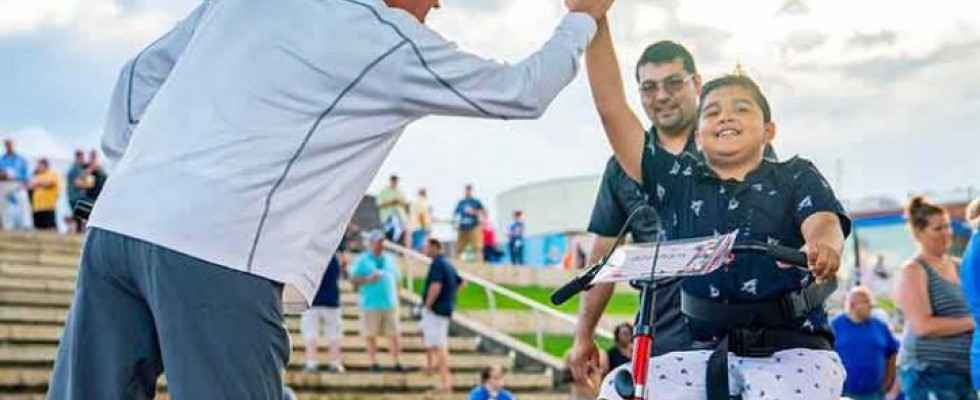
This is not your grandpa’s wheelchair. Or maybe it is. A wide base and 47-inch-long tracks. Twin, 900-lumen LED floodlights. Built-in USB ports. And a green-and-yellow paint scheme. Alec Gotto, 12, of Dyersville, Iowa, moves around the farm—and the competition ring—in a TrackMaster MK-1 all-terrain wheelchair, specially designed for him. The custom-built TrackMaster chair, donated by VGM Group and Total Respiratory and Rehab, comes with a price tag of about $35,000. Money raised by Gotto’s family, friends and supporters covered custom upgrades. He got the upgrade after using a more traditional wheelchair to show his steer JD—short for John Deere—during last year’s National Junior Angus Show at the Iowa State Fair. Once considered utilitarian pieces of equipment, mobility devices such as wheelchairs, ramps and adaptable tricycles are getting overhauls. The goal is getting people with limited or no mobility out where they want to be—parks, farms, hills, trails and beaches. It’s freedom for the user. But this freedom comes at a steep price, and it’s one that insurance, Medicare and Medicaid don’t usually cover. “These are made for folks who really want to challenge things,” said Travis Underwood of TrackMaster Mobility.
 The TrackMaster MK-1 takes mobility into uneven terrains.
(Photo courtesy of TrackMaster)
The TrackMaster MK-1 takes mobility into uneven terrains.
(Photo courtesy of TrackMaster)